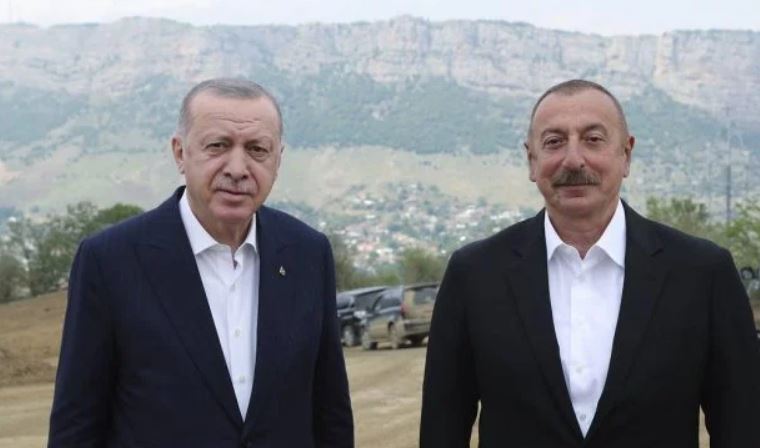The comment of the Foreign Ministry of Armenia on the declaration signed by the Presidents of Turkey and Azerbaijan
The Ministry of Foreign Affairs of Armenia has already issued a statement strongly condemning the joint visit of the Presidents of Turkey and Azerbaijan to the currently occupied city of Shushi of the Republic of Artsakh, and described it as an outright provocation against regional peace and security.
The declaration signed by the Presidents of Turkey and Azerbaijan in Shushi, as well as the remarks made by the President of Turkey in the Parliament of Azerbaijan are equally deplorable and provocative.
Although one of the provisions of the Turkish-Azerbaijani declaration states that the document is not directed against a third party, its entire content, nevertheless, targets the Armenian people. It clearly reveals that the two states, which launched a 44-day aggression against the Republic of Artsakh, made an alliance against the self-detemination of the people of Artsakh, the territorial integrity of the Republic of Armenia, and the rights of the Armenian people around the world who survived the genocide.
Read also
The “Zangezur corridor” expression used in the declaration proves that Turkey and Azerbaijan, encouraged by the impunity of their joint aggression and mass atrocities committed against the people of Artsakh, are now making public agreements against the territorial integrity and sovereignty of the Republic of Armenia. The agreement of the two states to fight against the international recognition of the Armenian Genocide is equally worrying.
The abovementioned agreements completely contradict the peremptory norms of general international law. In this respect we should emphasize that according to the international law, particularly the Vienna Convention on the Law of Treaties of 1969, all international treaties that conflict with a peremptory norm of general international law are void and can have no international legitimacy.
It is noteworthy that this declaration is based not on the UN Charter or the comprehensive and indivisible concept of security of the OSCE, but on their approach of “kinship security”, which is promoted as the principle of unification of the “Turkic world.”
Amid such an Armenophobic context, the proposals of the President of Turkey voiced in the Parliament of Azerbaijan on creating a platform for regional cooperation are hypocritical and misleading.
The public agreements of the Presidents of Turkey and Azerbaijan contain not only genocidal threats against the Armenian people in the region, but also a serious challenge for all countries interested in international and regional peace and security, that necessitates close cooperation among all these countries.
The situation deriving from the use of force and aggression against the people of Artsakh cannot become a basis for lasting peace, just as various made-up Turkish-Azerbaijani initiatives in Shushi cannot alienate this Armenian cultural center from Artsakh and the Armenian people.






















































